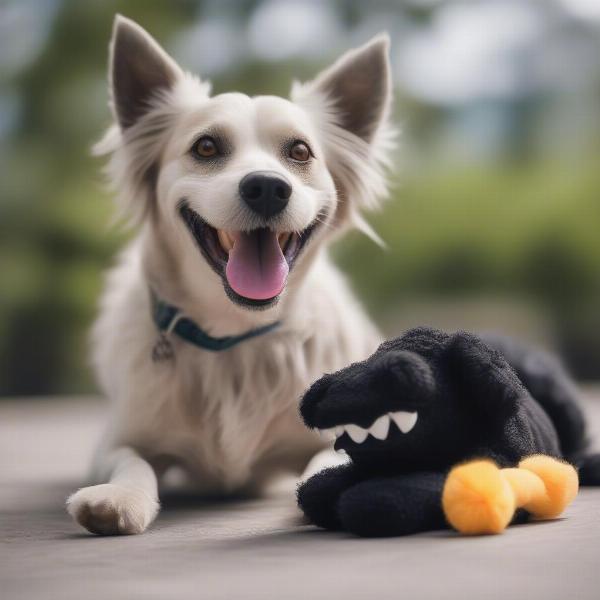Caring for a toothless dog might seem daunting, but with the right knowledge and a little extra care, your furry friend can live a full and happy life. This guide covers everything you need to know about caring for toothless dogs, from dietary adjustments to understanding their specific needs. We’ll explore how to make the transition to a toothless lifestyle smooth and enjoyable for both you and your canine companion.
Understanding Why Dogs Lose Their Teeth
Dogs can lose their teeth due to a variety of reasons, including periodontal disease, injury, or old age. Periodontal disease, the most common cause, results from plaque and tartar buildup, leading to gum inflammation and eventual tooth loss. Recognizing the signs of dental issues early, such as bad breath, red or swollen gums, and difficulty eating, is crucial for intervention and prevention. Regular veterinary checkups are essential for maintaining your dog’s oral health.
Adapting Your Dog’s Diet
One of the most significant changes you’ll need to make when caring for a toothless dog is their diet. Switching to soft foods is paramount. Canned food, specifically formulated for senior dogs or those with dental issues, is an excellent option. You can also consider soaking dry kibble in warm water or broth to soften it, making it easier to eat. treats for toothless dogs are also available, providing a safe and enjoyable way for your dog to indulge without compromising their oral health. Avoid hard treats, bones, and toys that could damage their delicate gums.
Maintaining Nutrition for Toothless Dogs
While soft food is essential, ensuring your toothless dog receives balanced nutrition is vital. Look for foods rich in protein, essential fatty acids, and vitamins. Consider adding supplements, after consulting your veterinarian, to address any potential nutritional deficiencies. Monitor your dog’s weight regularly, as changes in appetite and eating habits can affect their overall health.
Playing and Enrichment for Toothless Dogs
Even without teeth, dogs still need mental and physical stimulation. Focus on activities that don’t require chewing, such as gentle walks, interactive games like fetch with soft toys, and puzzle toys that dispense treats. chicken chips for dogs can be a great soft treat option for rewarding your furry friend during playtime. Maintaining a stimulating environment prevents boredom and promotes overall well-being.
Choosing the Right Food for Your Toothless Dog
Selecting the best dog food for dogs with no teeth can feel overwhelming with so many options available. Prioritize dog food no teeth specifically designed for dental issues or senior dogs. Look for palatable, highly digestible options. Consulting with your vet can provide personalized recommendations based on your dog’s breed, age, and overall health.
 Senior Toothless Dog Playing
Senior Toothless Dog Playing
Conclusion
Caring for a toothless dog requires understanding and adaptation, but the rewards are immeasurable. By providing the right diet, ensuring proper nutrition, and offering engaging activities, you can ensure your toothless companion enjoys a fulfilling and happy life. Remember, regular veterinary checkups are crucial for monitoring their overall health and addressing any potential issues.
FAQ
- Can toothless dogs eat dry food? Soaking dry kibble in water or broth can soften it, making it suitable for toothless dogs.
- What are the best treats for toothless dogs? Soft treats designed for senior dogs or those with dental issues are ideal.
- How can I keep my toothless dog entertained? Focus on activities that don’t require chewing, like gentle walks and interactive games with soft toys.
- Is special dog food necessary for toothless dogs? Yes, specially formulated soft food is often easier for them to eat and digest.
- What are the signs of dental problems in dogs? Bad breath, red or swollen gums, and difficulty eating are common signs.
- How often should I take my toothless dog to the vet? Regular checkups, at least every six months, are recommended.
- Can toothless dogs still play with toys? Yes, soft toys are a great option for toothless dogs.
ILM Dog is your trusted resource for all things canine. We offer expert advice and resources on dog breeds, health, training, nutrition, grooming, and much more. Whether you’re a seasoned dog owner or just starting out, our goal is to provide you with the information you need to care for your furry friend. From understanding the right white bones for dogs to choosing the perfect food, ILM Dog is here to support you every step of the way. Contact us today for personalized guidance: [email protected] or +44 20-3965-8624.